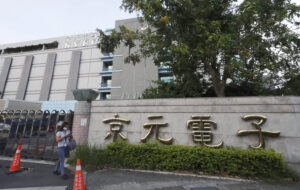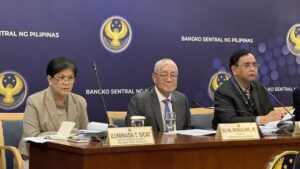Menu
Global Talks on Plastic Pollution End Without Consensus on Production Caps
- Junnel G
- April 30, 2024
- 11:26 pm
- No Comments

Recent negotiations aimed at forging a global treaty to address the escalating issue of plastic pollution concluded without an agreement on setting sustainable production limits. The discussions, which extended into the early hours of Tuesday, underscore the significant challenges and disagreements among nations concerning how to effectively manage the production and disposal of plastics.
The talks were part of an ongoing effort to create a comprehensive treaty, potentially comparable in impact to the 2015 Paris Agreement, focusing on the life cycle of plastics, including production, design, and disposal. This treaty is seen as critical in combating climate-warming emissions and the environmental degradation caused by plastic waste.
During the negotiations, held in Ottawa, over 50 countries supported a proposal by Rwanda and Peru to dedicate the months leading up to the next negotiation round in Busan, Korea, to analyzing sustainable levels of plastic production. Rwanda’s chief negotiator, Juliet Kabera, emphasized the urgency, noting that current production rates are unsustainable and far exceed global recycling and waste management capacities.
However, this initiative faced considerable resistance, particularly from major petrochemical-producing countries such as Saudi Arabia and China, as well as industry groups. These parties argued that efforts should instead focus on managing plastic waste and redesigning products to be less reliant on new plastics or to be more easily recyclable.
China’s lead negotiator, Yang Xiaoling, advocated for focusing on “non-contentious subjects,” suggesting that a consensus might be easier to achieve on issues like product redesign rather than on curbing production levels.
The Philippines took a firm stance in favor of reducing plastic production globally, underscoring the need for “a reduction of primary plastic polymers, global aggregate targets, and national phase-down schedules” as essential elements for sustainable production and consumption.
Environmental groups present at the talks expressed concerns that political compromises could weaken the effectiveness of the eventual treaty. Christina Dixon, an ocean campaigner for the Environmental Investigation Agency, lamented that the agreed topics for further discussion do not comprehensively address the range of issues or the entire lifecycle of plastics.
As the negotiations move towards their final round in Busan in November, delegates have managed to condense a previously 70-page draft document into a more focused negotiating text, setting the stage for potentially pivotal discussions that will aim to finalize the treaty. The goal remains to significantly reduce plastic pollution and align the plastic industry with the climate targets established in the Paris Agreement, including a proposed 75% reduction in plastic use by 2050 and the elimination of single-use plastics by 2040.
#Top Tags COVID Covid-19 Technology Finance Investing Sustainability Economy

Subscribe to Our Newsletter and get a free pdf:



















No comment yet, add your voice below!